Divisions
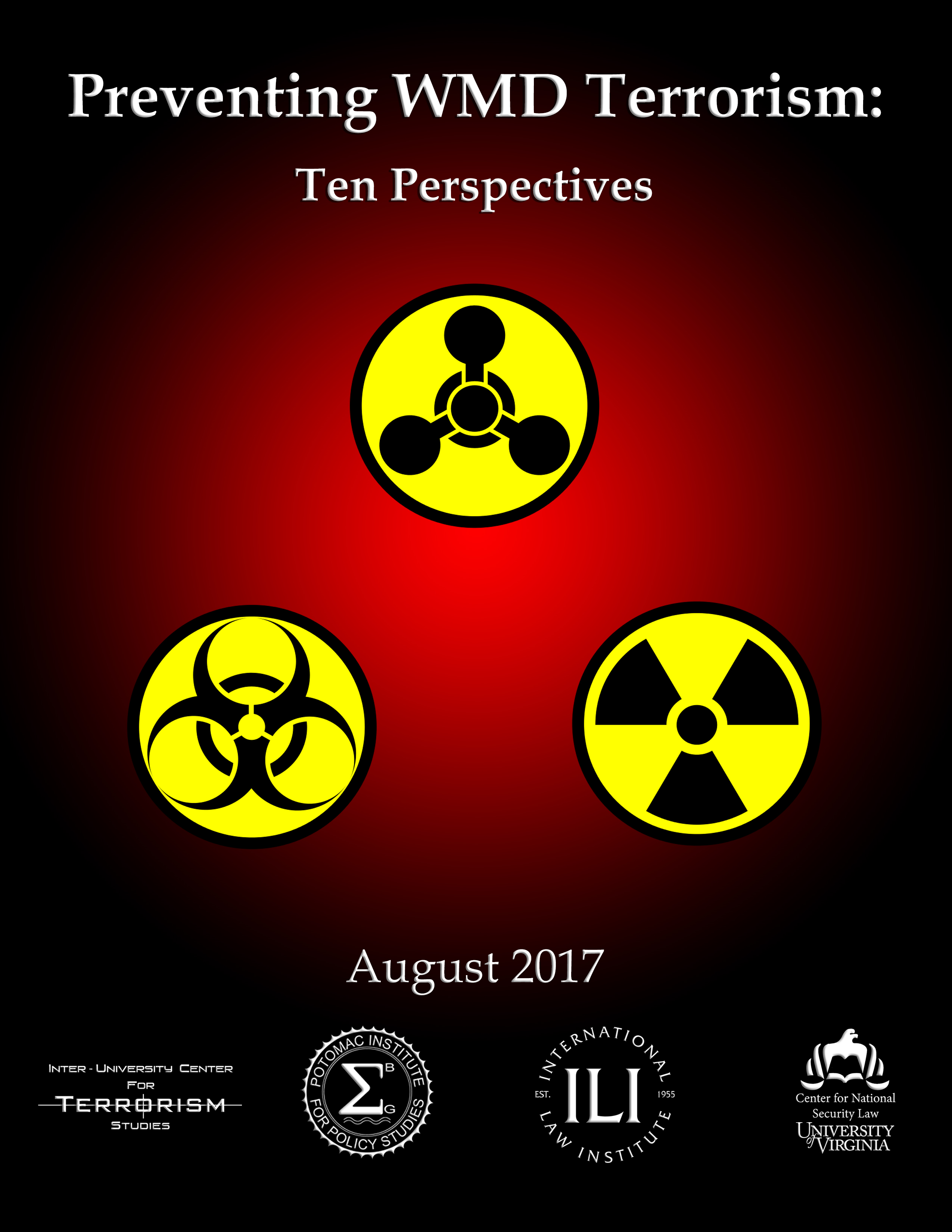
Preventing the proliferation of biological, chemical, radiological, and nuclear weapons has been a major priority for many nation states in the post-World War II era. Additionally, in the aftermath of 9/11, there has been a growing awareness globally of the potential dangers posed by terrorist groups who may resort to WMD capabilities.
The purpose of this report on “Preventing WMD Terrorism: Ten Perspectives” is to provide some recent insights from experts on lessons learned, assessments of future challenges, and offer recommendations on response strategies to reduce the risk on national and international levels.
Download the report here.
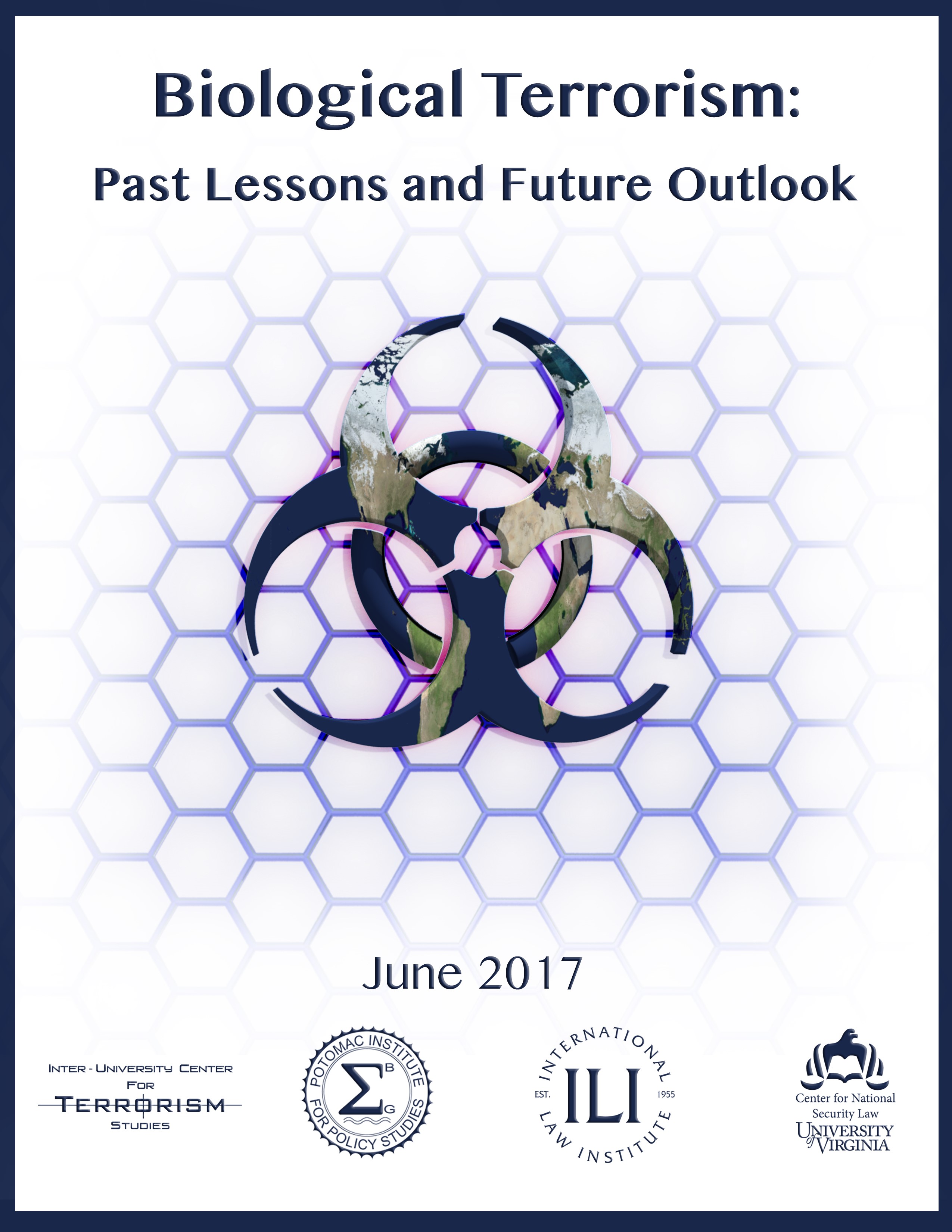
Biological security concerns are permanent fixtures of history, ranging from Mother Nature’s infectious diseases to man-made threats by state and non-state actors. Thus, as the international community is currently approaching the 100 year anniversary of the 1918 influenza pandemic that killed an estimated 50-100 million people, it is assessing the implications of the recent epidemics of Ebola and Zika, considering potential dangers of biological terrorism, and beginning to offer recommendations on response strategies to reduce the risk on national, regional, and global levels.
This June 2017 report on “Biological Terrorism: Past Lessons and Future Outlook” serves as an academic effort to provide insights from former U.S. officials, members of Congress, and other experts on these looming security challenges.
Download the report here.
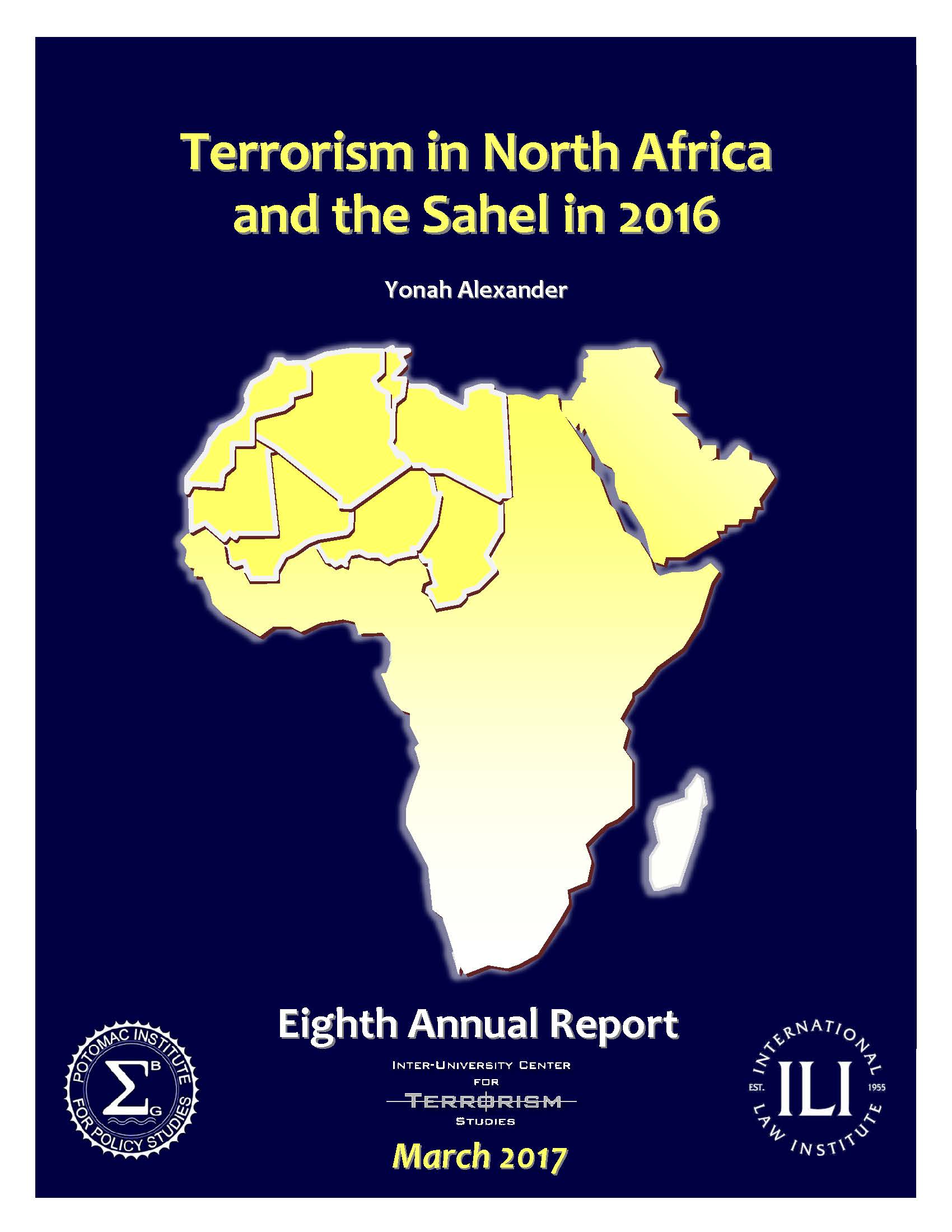 On April 13,2017,the Inter-University Center for Terrorism Studies (IUCTS) published its eighth annual report, "Terrorism in North Africa and the Sahel in 2016," authored by Prof. Yonah Alexander, Director--IUCTS. The report finds the region & global community facing the most serious security challenges since 9/11, from natural and man-made threats. The rise of the Islamic State and the resilience of al-Qa’ida and their affiliates in Africa in 2016 have resulted in continued instability on the continent with a costly strategic impact inter-regionally. The study recommends the U.S. & allies engage more effectively to slow a security crisis that is erupting across Africa’s “arc of instability.”
On April 13,2017,the Inter-University Center for Terrorism Studies (IUCTS) published its eighth annual report, "Terrorism in North Africa and the Sahel in 2016," authored by Prof. Yonah Alexander, Director--IUCTS. The report finds the region & global community facing the most serious security challenges since 9/11, from natural and man-made threats. The rise of the Islamic State and the resilience of al-Qa’ida and their affiliates in Africa in 2016 have resulted in continued instability on the continent with a costly strategic impact inter-regionally. The study recommends the U.S. & allies engage more effectively to slow a security crisis that is erupting across Africa’s “arc of instability.”
Download the report here.
Latin America’s Strategic Outlook: Populist Politics, Health Concerns, and Other Security Challenges
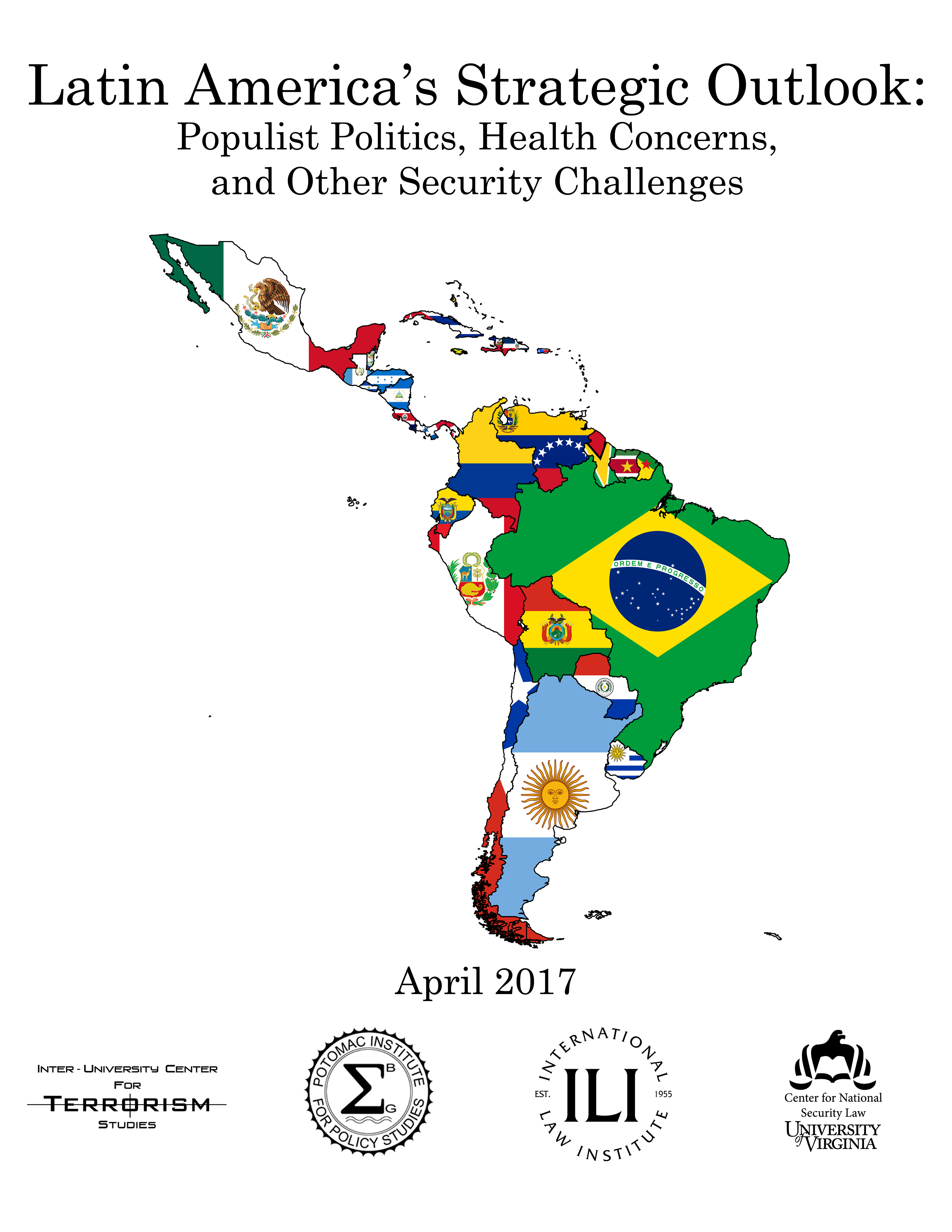 Latin America continues to face multiple security challenges including natural disasters, infectious diseases, organized crime, terrorism, migration, economic development, and threats to democratic governance.
Latin America continues to face multiple security challenges including natural disasters, infectious diseases, organized crime, terrorism, migration, economic development, and threats to democratic governance.
This April 2017 report on “Latin America’s Strategic Outlook: Populist Politics, Health Concerns, and Other Security Challenges” deals with recent security-related developments such as the Rio Olympics, the Zika epidemic, and post-Castro-era assessments.
Download the report here.
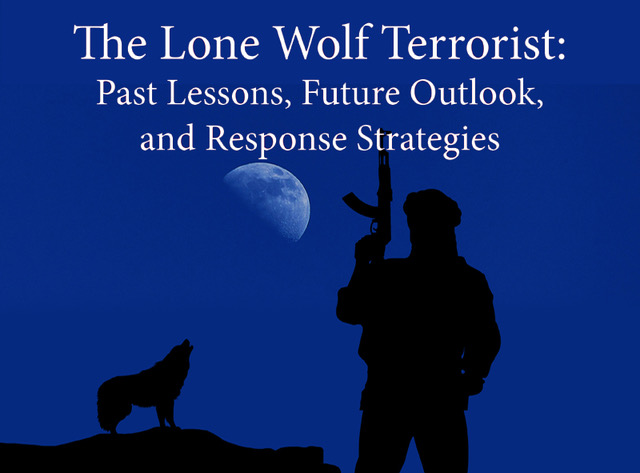 The latest terrorist incidents in the U.S., Europe, the Middle East, Asia, and elsewhere, are once again a grim reminder of the expanding operational roles of "lone wolves." Whether they are self-radicalized or linked to home-grown or foreign groups, their involvement reflects a worrisome weakness in the security chain of modern society.
The latest terrorist incidents in the U.S., Europe, the Middle East, Asia, and elsewhere, are once again a grim reminder of the expanding operational roles of "lone wolves." Whether they are self-radicalized or linked to home-grown or foreign groups, their involvement reflects a worrisome weakness in the security chain of modern society.
This February 2017 report on “The Lone Wolf Terrorist: Past Lessons, Future Outlook, and Response Strategies” focuses on some of the “lone wolf” challenges. These include security threats to the safety, welfare, and rights of ordinary people; the stability of the state system; the impact on national, regional, and global economic development; the expansion of democratic societies; and the prevention of the destruction of civilization by biological, chemical, and nuclear weapons.
Download the report here.
